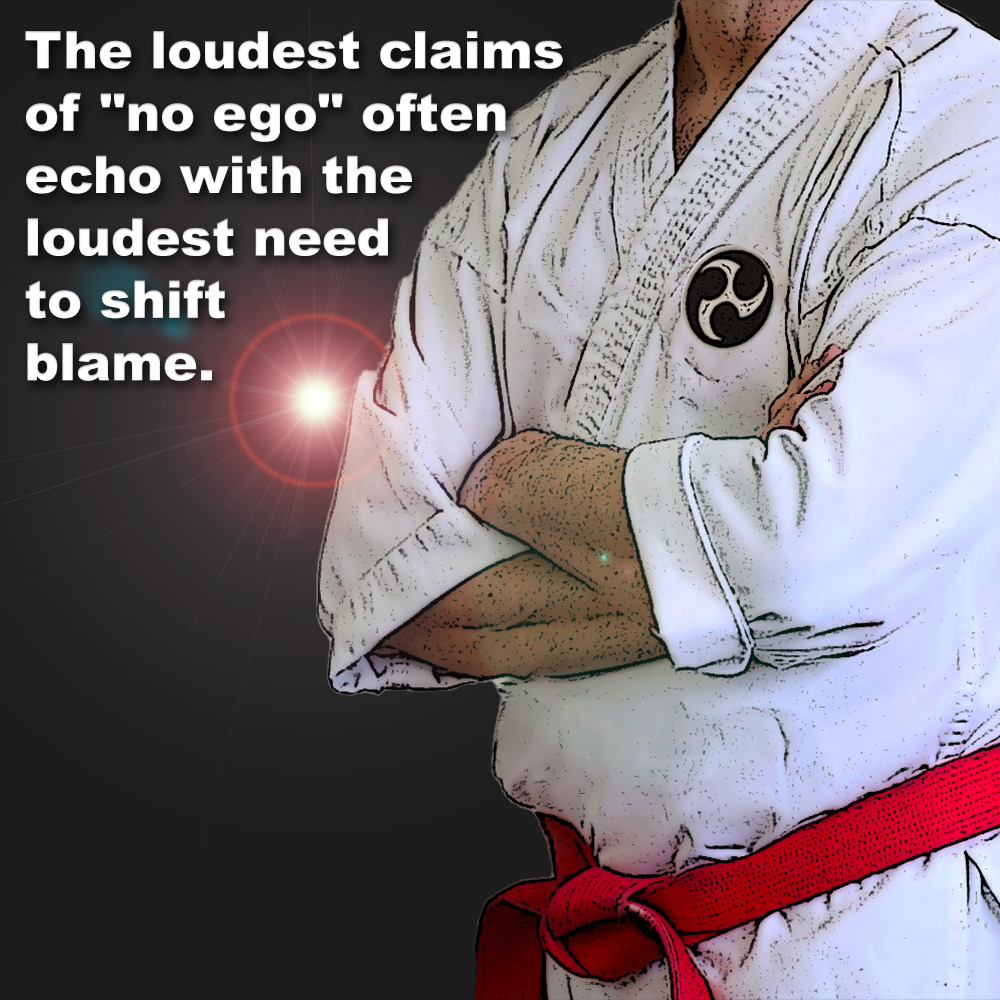
(1 minute 35 second read)
Recently someone commented that they have “no ego”, and I wondered why he would state this.
.
“I have no ego,” the words tumble out, a disarmingly humble shield against the rising tide of blame. But beneath this seemingly self-effacing declaration, a different truth might lurk: the art of shifting responsibility, of deflecting accountability with a veil of feigned humility.
.
This tactic, while seemingly innocuous, is anything but. It’s a calculated move, often employed by those unwilling to face the consequences of their actions.
.
By claiming “no ego,” they attempt to rewrite the narrative, painting themselves as selfless victims of circumstance, conveniently forgetting the role their own choices played in the mess they created.
.
The motivations behind such manipulation can be many. Some might seek to preserve a carefully crafted image of themselves, deflecting criticism with a performative display of humility. Unable to acknowledge the impact of their actions.
.
But perhaps the most insidious motive is the desire for power – the power to control the narrative, to manipulate others into accepting their self-serving version of reality.
.
An attempt at deflecting responsibility, easily dismissed with a knowing smile. But when the stakes are high, when genuine harm has been inflicted, the consequences of such manipulation can be devastating.
.
It erodes trust, breeds resentment, and leaves the true victim feeling unheard.
.
Therefore, it’s imperative to approach claims of “no ego” with a discerning eye. Look beyond the words, examine the actions, and consider the context.
.
Is he truly striving for humility, or is he merely attempting to manipulate the narrative?
.
Do they take responsibility for their mistakes, or do they consistently deflect blame onto others? Are their actions driven by genuine selflessness, or do they serve a self-serving agenda?
.
By looking beyond the surface, you can avoid being manipulated by this clever tactic and hold individuals accountable for their actions, regardless of the self-proclaimed absence of ego.
.
It’s important to listen closely to the unheard, for their voice deserves space in the truth they seek.
.
“The loudest claims of ‘no ego’ often echo with the loudest need to shift blame.”
